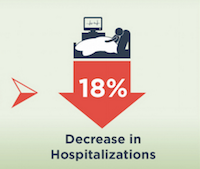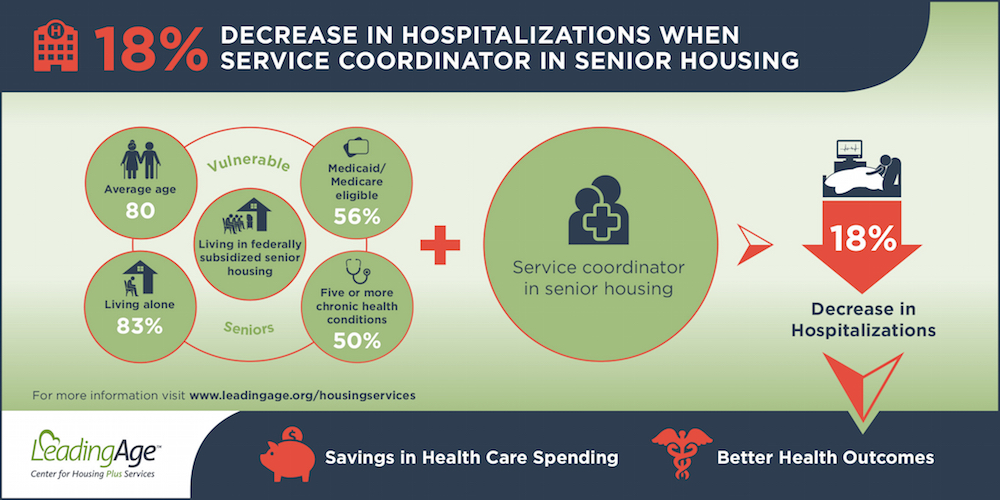
The availability of an on-site service coordinator, such as a social worker, at federally subsidized seniors housing reduced hospital admissions among residents by 18%, according to a study by LeadingAge and the Lewin Group released Nov. 20 at the Gerontological Society of America annual meeting in Orlando, FL.
About 40% of subsidized senior housing properties have on-site service coordinators, who connect residents with community-based resources and services, such as transportation, nutrition counseling and wellness programs, designed to help them remain healthy and independent.
“The size of the senior housing population, and the health challenges that these residents face, suggest that substantial healthcare savings could be realized if more housing properties had service coordinators working on site,” said Alisha Sanders, senior policy research associate in the LeadingAge Center for Applied Research, who presented the research at the conference.
The study of 8,706 seniors in 507 properties in 12 communities around the country focused on healthcare use among lower-income older adults. The average age of the older adults living in these communities was 80 years, with 56% of them eligible for both Medicaid and Medicare. Half of the older adults had five or more chronic conditions, such as heart disease, diabetes, arthritis or cancer.
“At a time when the population as a whole is getting grayer and policymakers are under increasing pressure to rein in healthcare costs, federal and state agencies, as well as healthcare providers, should consider partnering with federally subsidized senior housing properties to coordinate services,” Sanders said. “Today’s study indicates that such coordination and collaboration can save Medicare dollars for millions of low-income elderly residents.”




